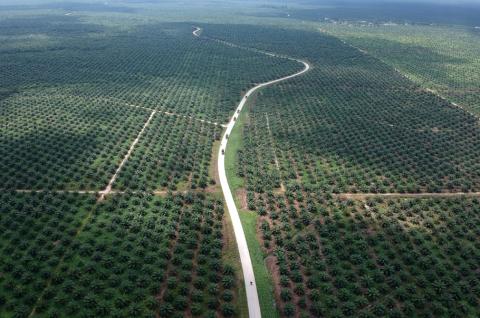Advertisement
Indonesia defends palm oil after EU targets 2030 phase-out in road fuel
JAKARTA (Reuters) - Indonesia, the world's biggest producer of palm oil, will not accept an EU plan to curb the use of crops that cause deforestation, and argued that its higher production yield made it better placed to meet global demand, a senior Indonesian official said.
A European Union draft due to come into effect after four weeks of public consultation, concluded that palm oil cultivation results in deforestation and its usage in transportation fuel should be phased out by 2030.
Indonesia intends to challenge the plan, known as RED II, at the World Trade Organization on the basis that it does not meet its free trade principles and that the method used to define sustainability unfairly favored European vegetable oils such as sunflower and rapeseed.
"The EU wants to position itself, especially in the current global circumstances, as a defender of free trade but they are acting like this," said Mahendra Siregar, special staff at the foreign ministry.
Siregar said environmental damage was also caused by other vegetable oils, while palm's higher production yield made it better placed to meet global vegetable oils demand expected to reach at least 320 million tonnes by 2025.
To meet such demand, soy would require a cultivation area ten times the area required for palm and in the case of rapeseed up to six times, Siregar said.
"In this context, palm oil is the most sustainable," said Siregar, who is also the executive director of the Council of Palm Oil Producing Countries.
Rapid expansion of palm has been blamed for a massive clearance of forests that were home to endangered tigers, orang-utans and elephants in the two top producing countries Indonesia and Malaysia.
An EU representative in Jakarta has said the group considers RED II to be in line with its WTO obligations and the European Commission will ensure its implementation meets fair and rule-based trade regime.
The EU, in its proposal, said that 45 percent of the extra land used for palm oil production since 2008 had previously been forested, compared with 8 percent for rival oil crop soybeans and 1 percent for sunflowers and rapeseed.
The EU accounts for around 15 percent of Indonesia's 2018 palm oils exports, valued at around $19 billion, according to the Indonesian Palm Oil Association data (GAPKI).
Last year, Indonesian biodiesel producers resumed exports of palm-based fuel to Europe after the WTO ordered the EU to remove anti-dumping tariffs after challenges by Jakarta.
Siregar said Indonesia and Malaysian were backed by Association of Southeast Asian Nations (ASEAN) over the issue during the latest meeting with the EU in Brussels, resulting in a decision to form a joint working group to discuss palm issues.
(Additional reporting by Gayatri Suroyo; Writing by Fransiska Nangoy; Editing by Ed Davies and Louise Heavens)



















Add new comment